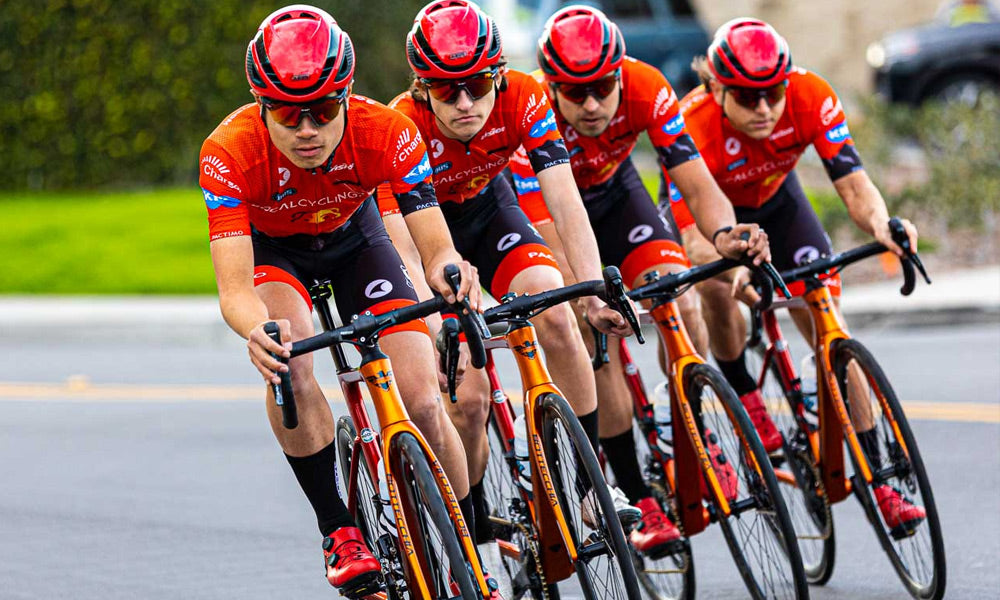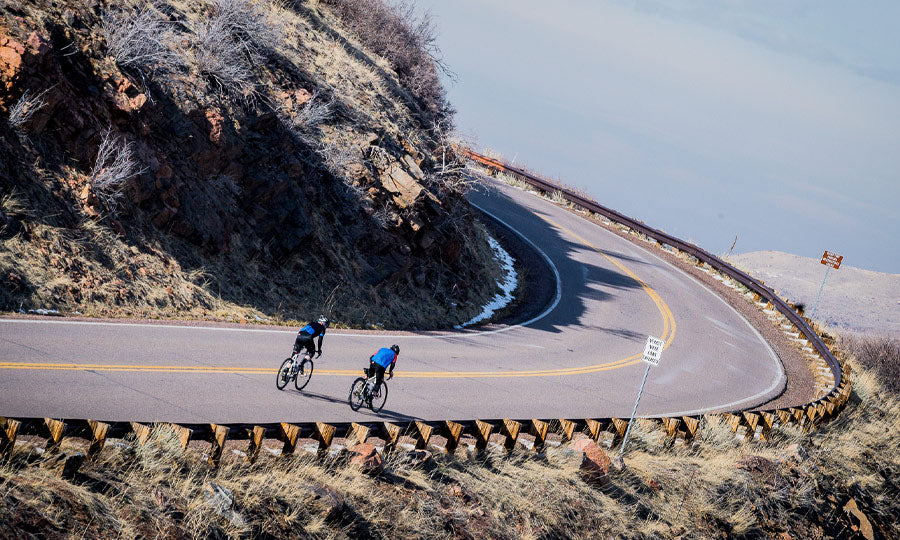Your Bike As a Buddha
Cycling is more meditative than we think.
If you've done any amount of cycling in your life, you know how great a long ride can leave you feeling. You feel mentally reset and somehow your outlook on the day - and life - seems a little brighter. It would be easy to attribute this post-ride bliss to an endorphin boost - essentially the cyclist's version of a runner's high.
But the psychological benefits of riding a bike appear to go beyond merely endorphin release. What else could be going on here to explain the therapeutic value of those miles in the saddle?
Former Canadian national criterium champion Sara Bergen says, "When I'm out on my bike, everything else melts away. All the stress and any nagging thoughts are gone. It enables me to more fully connect with the moment and to be more present."

Bergen overcame a career-threatening injury in 2019 that gave her a new perspective on life.
here's something visceral about riding. Getting on your bike and pedaling down a winding, scenic road has a decidedly meditative quality to it. Worries seem to evaporate in the wind. Even the weight of a global pandemic seems to lighten up a little bit. Maybe it's the repetitive rotation of the pedals. Thy hypnotic whir of the tires on pavement. Or the rhythmic pace of your breathing. It has a way of grounding you in the moment.

The mindset you dream of is closer than you think.
You'd almost think we're talking about meditation here, not riding a bike. Then again, maybe there's less difference between the two than you'd think. Meditation gurus often refer to this centered state of present moment awareness as mindfulness.
Jon Kabat-Zinn is a renowned author, meditation expert, and founder of the Mindfulness-Based Stress Reduction Porgram at the University of Massachusetts Medical School. He defines mindfulness as "The awareness that arises through paying attention, on purpose, in the present moment." In his book, Full Catastrophe Living, Kabat-Zinn says, "Moments of mindfulness are moments of peace and stillness, even in the midst of activity. When your whole life is driven by doing, formal meditation practice can provide a refuge of sanity and stability that can be used to restore some balance and perspective."
Zinn's teachings suggest that meditation is less about what activity you're doing and more about the quality of attention you're paying to it. His internationally-recognized programs even include walking and eating meditations. When done mindfully, maybe a bike seat is as good a place to meditate as any.

Cycling is a mental playground - clear your mind or focus, entirely up to you.
It turns out we're a lot like meditators when we're riding. We tend to pay more attention to what we're doing. We're no longer mentally multi-tasking. We're more likely to be focused on our breathing. Or concentrating on the act of pedaling. This frees us from the hamster wheel of repetitive thinking. It allows us to simply be where we are: on a bike, riding it.
In today's fast-paced, always-on world, our attention is continually tugged in different directions. Whether it's the latest COVID-19 headline, our work, our devices, or a host of other distractions, it keeps us either thinking about the past or worrying about the future. The simple act of riding a bike transports us to a place we rarely get to be anymore: the present moment.
Not everyone can sit still in a lotus position and meditate for an hour to quiet the mind. But just about anyone can ride a bike. And the great thing is, when you do, it provides the perfect conditions for the mind to quiet itself.
The next time you return from a bike ride and find yourself basking in that post-ride afterglow, remember that maybe it's not the endorphins. Maybe it's because you were accidentally meditating and didn't even know it.
In his book, Wherever You Go, There You Are, Kabat-Zinn says, "In meditation practice, the best way to get somewhere is to let go of trying to get anywhere at all"
Unless of course, you happen to be on your bike.

READ THE ORIGINAL STORY ON RALLY CYCLING NEWS






